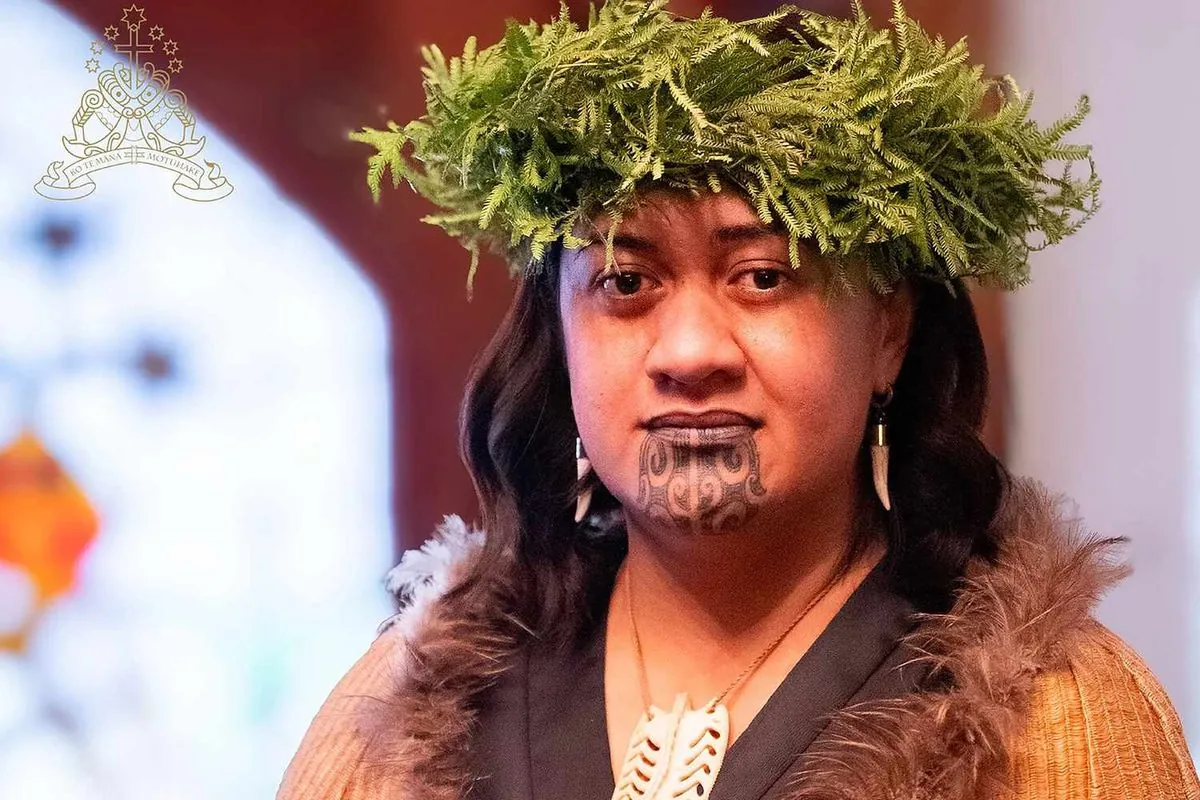Young Māori Woman Crowned Leader in Historic Succession
Nga Wai Hono i te po Paki, 27, becomes the new Māori queen, succeeding her late father. The coronation marks a significant moment for indigenous rights and cultural preservation in New Zealand.

In a historic event, Nga Wai Hono i te po Paki, a 27-year-old accomplished haka dancer, has been crowned as the new Māori leader, succeeding her late father, King Tuheitia Pootatau Te Wherowhero VII. This coronation, attended by thousands, marks a significant shift in the Kiingitanga movement, which has championed Māori unity and sovereignty since its establishment in 1858.
Nga Wai Hono i te po Paki brings a fresh perspective to the role, holding a master's degree in Māori customs and having been educated in Māori immersion schools. These institutions, known as Kura Kaupapa Māori, were established in 1985 to preserve and promote the Māori language and culture. Community chiefs have hailed her as the "new dawn" of a younger generation of leaders, emerging at a critical time for indigenous rights in New Zealand.
The coronation took place in Ngāruawāhia, the seat of the Māori King Movement since 1863, situated along the Waikato River, New Zealand's longest waterway. The ceremony was held at the Tūrangawaewae Marae, an ancestral meeting place established in 1921 by Princess Te Puea Herangi, highlighting the deep-rooted traditions of the Māori people.

The Kiingitanga movement, founded in the aftermath of British colonization, has played a crucial role in preserving Māori culture and advocating for the rights outlined in the Treaty of Waitangi. This foundational document, signed on February 6, 1840, between the British Crown and Māori tribes, has been a source of ongoing discussion and, at times, tension in New Zealand society.
Recent months have seen protests in response to the New Zealand government's pledge to review the treaty and potentially implement changes to how it affects modern laws. These developments underscore the continuing importance of the Kiingitanga movement in advocating for Māori interests.
The late King Tuheitia, who passed away at 69 after heart surgery, had made a powerful call for Māori unity in the face of potential challenges to the recognition of their language, people, and customs. In January 2024, he convened a national meeting of tribes, attended by 10,000 people, where he emphasized the importance of embracing Māori identity:
"The best protest we can make right now is being Māori. Be who we are. Live our values. Speak our reo. Just be Māori. Be Māori all day, every day. We are here. We are strong."
This message resonates deeply with the Māori community, which comprises about 16.5% of New Zealand's population as of 2023. The Māori language, officially recognized since 1987, is a vital part of this cultural identity, supported by initiatives such as the Māori Television Service, launched in 2004.
As Nga Wai Hono i te po Paki assumes her role as only the second queen in the Kiingitanga tradition, she faces the challenge of balancing cultural preservation with the evolving needs of her people. Her coronation, which included a flotilla of traditional canoes along the river, symbolizes both continuity and change in Māori leadership.
It's important to note that while the Kiingitanga holds significant cultural and ceremonial importance, it is not a constitutional monarchy. King Charles III remains New Zealand's head of state, reflecting the complex historical relationship between the Māori people and the British Crown.
As New Zealand continues to navigate issues of indigenous rights and cultural recognition, the coronation of Nga Wai Hono i te po Paki represents a pivotal moment in the ongoing story of Māori resilience and adaptation in the face of historical challenges and contemporary pressures.


































